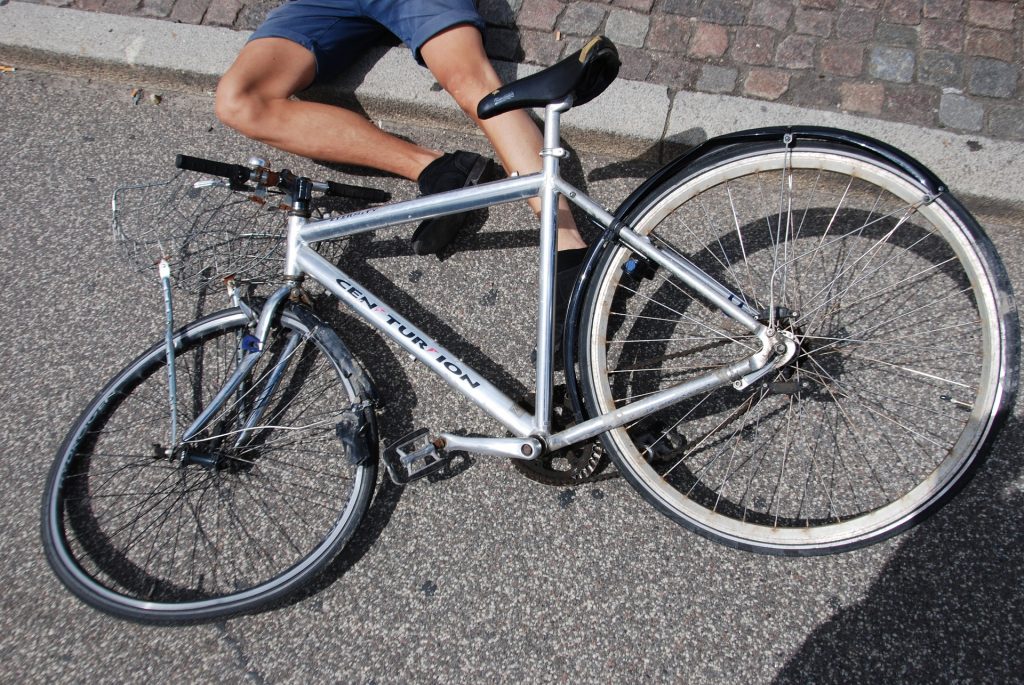 Cyclists must follow the rules of the road, not only for their own safety, but also because if an accident occurs the cyclist’s rule breaking could affect recovery. When a car hits a cyclist, the injured party can sue for negligence and recover damages as long as the other party was at fault. Outside of New Orleans, at the intersection of Jefferson Highway and North Causeway Boulevard, one cyclist failed to recover damages because he did not follow cycling rules.
Cyclists must follow the rules of the road, not only for their own safety, but also because if an accident occurs the cyclist’s rule breaking could affect recovery. When a car hits a cyclist, the injured party can sue for negligence and recover damages as long as the other party was at fault. Outside of New Orleans, at the intersection of Jefferson Highway and North Causeway Boulevard, one cyclist failed to recover damages because he did not follow cycling rules.
On September 24, 2012, Felix Palmisano was biking west on Jefferson Highway at 9:45 PM. At that time, Walter J. Ohler was driving a truck south on Causeway Boulevard. At the intersection of these two roads, Jefferson Highway is six lanes wide while Causeway Boulevard merges into one lane. As Mr. Ohler approached the southbound redlight, the signal turned green so Mr. Ohler coasted through the intersection. Mr. Palmisano saw the oncoming truck, but thought he could cross one lane before the truck could cross six. His intuition was wrong, and he was hit, suffering injuries.
On September 20, 2013, Mr. Palmisano sued Mr. Ohler in the Twenty-Fourth Judicial District Court Parish of Jefferson, arguing that Mr. Ohler was at fault for causing the accident. The District Court ruled that Mr. Palmisano failed to prove this fault by the required “preponderance of the evidence,” which means there is a greater than 50% chance of it being true. Mr. Palmisano then appealed this decision to The Louisiana Fifth Circuit Court of Appeal, which focused on the fault and obligations of both the driver and the cyclist.
 Louisiana Personal Injury Lawyer Blog
Louisiana Personal Injury Lawyer Blog


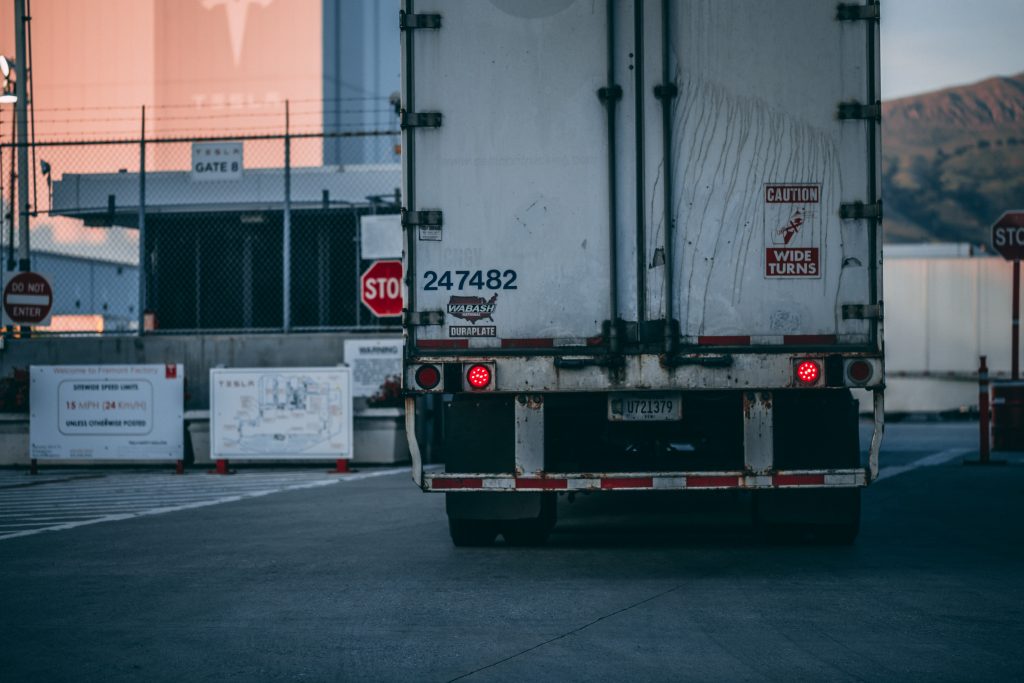 Christmas is usually a busy time for families, especially those traveling to visit loved ones. For many businesses it is also a time for increased sales and higher profits. For this reason, it is common for companies to set strict targets and deadlines for employees to meet in order to capitalize on the opportunity. Such deadlines, however, can be dangerous if they push employees beyond their capacities for safety.
Christmas is usually a busy time for families, especially those traveling to visit loved ones. For many businesses it is also a time for increased sales and higher profits. For this reason, it is common for companies to set strict targets and deadlines for employees to meet in order to capitalize on the opportunity. Such deadlines, however, can be dangerous if they push employees beyond their capacities for safety. Car accidents are always stressful, even if they are minor accidents and no one gets hurt. However, when you have multiple accidents within moments of each other and someone is seriously injured, or killed, things turn serious. And when things turn serious, you will want an experienced attorney at your side.
Car accidents are always stressful, even if they are minor accidents and no one gets hurt. However, when you have multiple accidents within moments of each other and someone is seriously injured, or killed, things turn serious. And when things turn serious, you will want an experienced attorney at your side.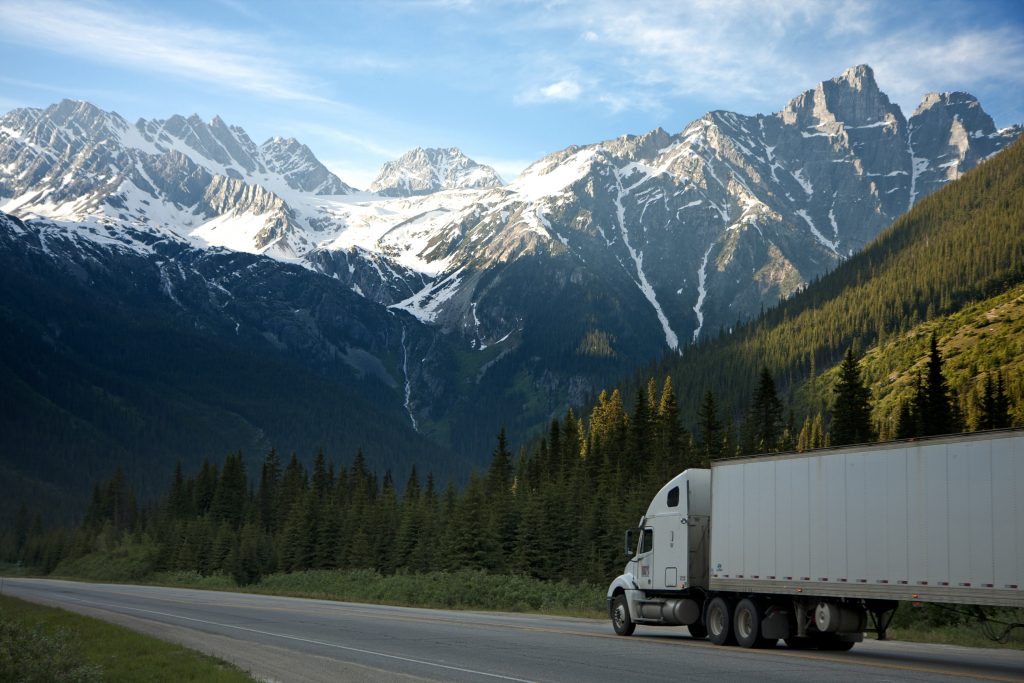 A car accident is difficult to manage even when it is just a simple fender-bender. Imagine a situation where the accident is so complex that multiple companies are involved, and those companies begin filing crossclaims amongst each other. The suit can quickly get bogged down and complicated. This is exactly what happened to a family driving in St. Tammany Parish.
A car accident is difficult to manage even when it is just a simple fender-bender. Imagine a situation where the accident is so complex that multiple companies are involved, and those companies begin filing crossclaims amongst each other. The suit can quickly get bogged down and complicated. This is exactly what happened to a family driving in St. Tammany Parish. Most people are extra cautious when driving near an 18-wheeler truck, but accidents can happen in ways a person cannot always anticipate. That is what happened to Evelyn J. Menard in Baton Rouge in May of 2004, when an 18-wheeler in front of her snagged a wire above the road, which snapped and hit her car. Evelyn’s car went into a spin, and the truck did not stop. As a result, Evelyn had serious injuries to her lower back
Most people are extra cautious when driving near an 18-wheeler truck, but accidents can happen in ways a person cannot always anticipate. That is what happened to Evelyn J. Menard in Baton Rouge in May of 2004, when an 18-wheeler in front of her snagged a wire above the road, which snapped and hit her car. Evelyn’s car went into a spin, and the truck did not stop. As a result, Evelyn had serious injuries to her lower back 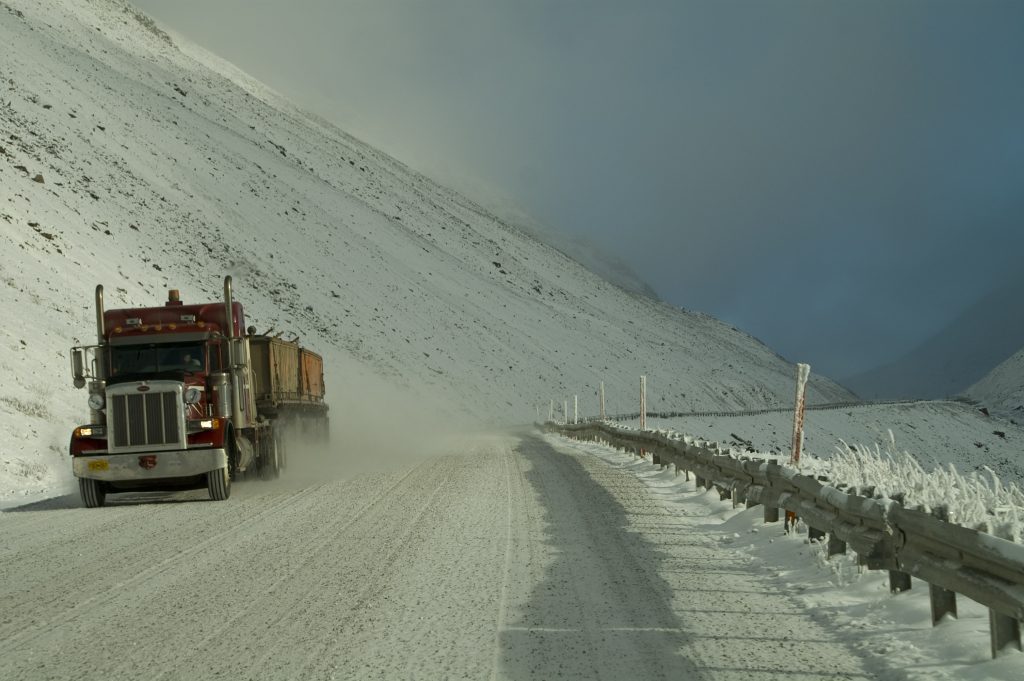 The viewing of a dead body can be traumatic for many people. If that viewing is caused by the negligence of another an excellent attorney may help you secure compensation for the emotional anguish experienced from that event. Shortly after midnight on February 4, 2011, Ronnie Rodd Davis was operating a tractor-trailer, owned by Superior Carriers, on eastbound Interstate 10 near the Atchafalaya Basin Bridge in Baton Rouge. Mr. Davis noticed that a collision had recently occurred in front of him and was able to stop before joining the other cars in the collision. Due to the abrupt stop to avoid the collision Mr. Davis’ tractor-trailer was rear-ended by another tractor-trailer operated by John V. Scott, and owned by Service Transport Company. The collision caused Mr. Davis’ tractor-trailer to move forward and strike a Ford F-150 pickup truck that was involved in the initial collision. Mr. Davis exited his tractor-trailer and upon exiting saw the deceased driver of that Ford F-150, Jonas T. Richmond, under or near Mr. Davis’ trailer axle.
The viewing of a dead body can be traumatic for many people. If that viewing is caused by the negligence of another an excellent attorney may help you secure compensation for the emotional anguish experienced from that event. Shortly after midnight on February 4, 2011, Ronnie Rodd Davis was operating a tractor-trailer, owned by Superior Carriers, on eastbound Interstate 10 near the Atchafalaya Basin Bridge in Baton Rouge. Mr. Davis noticed that a collision had recently occurred in front of him and was able to stop before joining the other cars in the collision. Due to the abrupt stop to avoid the collision Mr. Davis’ tractor-trailer was rear-ended by another tractor-trailer operated by John V. Scott, and owned by Service Transport Company. The collision caused Mr. Davis’ tractor-trailer to move forward and strike a Ford F-150 pickup truck that was involved in the initial collision. Mr. Davis exited his tractor-trailer and upon exiting saw the deceased driver of that Ford F-150, Jonas T. Richmond, under or near Mr. Davis’ trailer axle.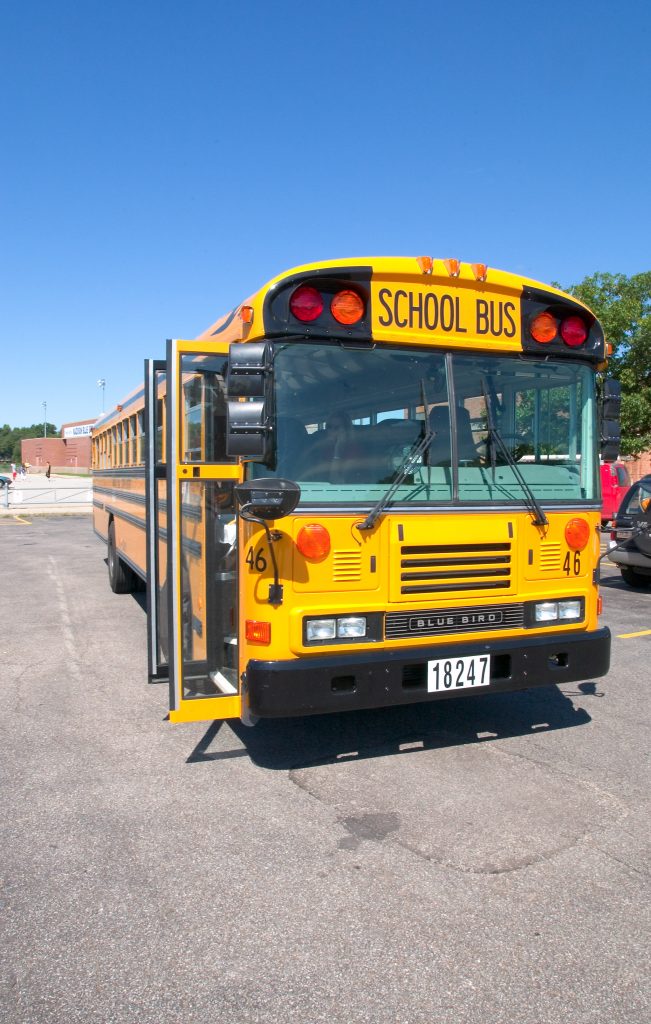 Losing a child is always an extremely difficult experience for a parent to go through, and it is even more difficult when the death is a result of negligence. Normally when negligence occurs, the parents bring forth a wrongful death lawsuit against the negligent party.
Losing a child is always an extremely difficult experience for a parent to go through, and it is even more difficult when the death is a result of negligence. Normally when negligence occurs, the parents bring forth a wrongful death lawsuit against the negligent party.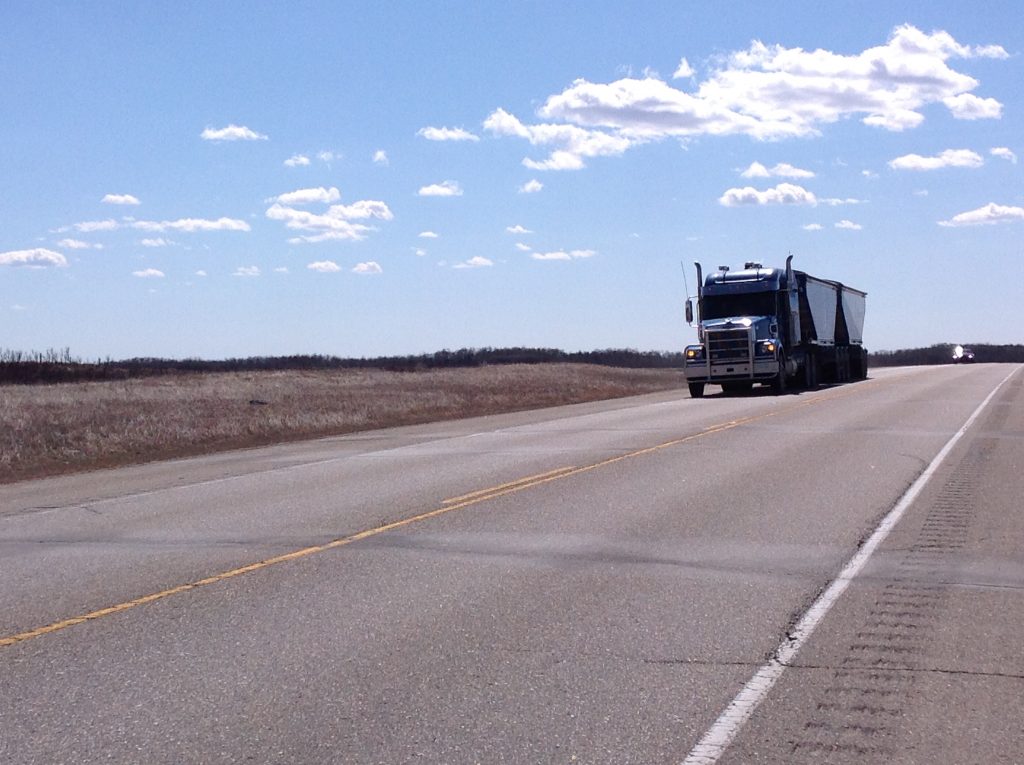 You never know when a leisurely drive can turn into a lengthy lawsuit. Larry Dragna was on a drive in November, 2011, when his vehicle was hit by a driver for A&Z Transportation. KLLM Logistics hired A&Z to transport a freight load from Louisiana to Michigan. Before hiring A&Z, KLLM followed its internal selection policy by reviewing A&Z on a transportation industry review website, which showed that three of A&Z’s scores were at a point that indicated problems in certain categories. Although the indicators showed instances of unsafe driving, fatigued driving, and maintenance issues, there were no federal regulations that advised KLLM not to hire companies with scores like A&Z. KLLM, however, had an internal policy to not hire carriers with three troublesome scores until it had discussed the scores internally or with the carrier. There is no evidence if whether KLLM followed this policy when they hired A&Z.
You never know when a leisurely drive can turn into a lengthy lawsuit. Larry Dragna was on a drive in November, 2011, when his vehicle was hit by a driver for A&Z Transportation. KLLM Logistics hired A&Z to transport a freight load from Louisiana to Michigan. Before hiring A&Z, KLLM followed its internal selection policy by reviewing A&Z on a transportation industry review website, which showed that three of A&Z’s scores were at a point that indicated problems in certain categories. Although the indicators showed instances of unsafe driving, fatigued driving, and maintenance issues, there were no federal regulations that advised KLLM not to hire companies with scores like A&Z. KLLM, however, had an internal policy to not hire carriers with three troublesome scores until it had discussed the scores internally or with the carrier. There is no evidence if whether KLLM followed this policy when they hired A&Z. 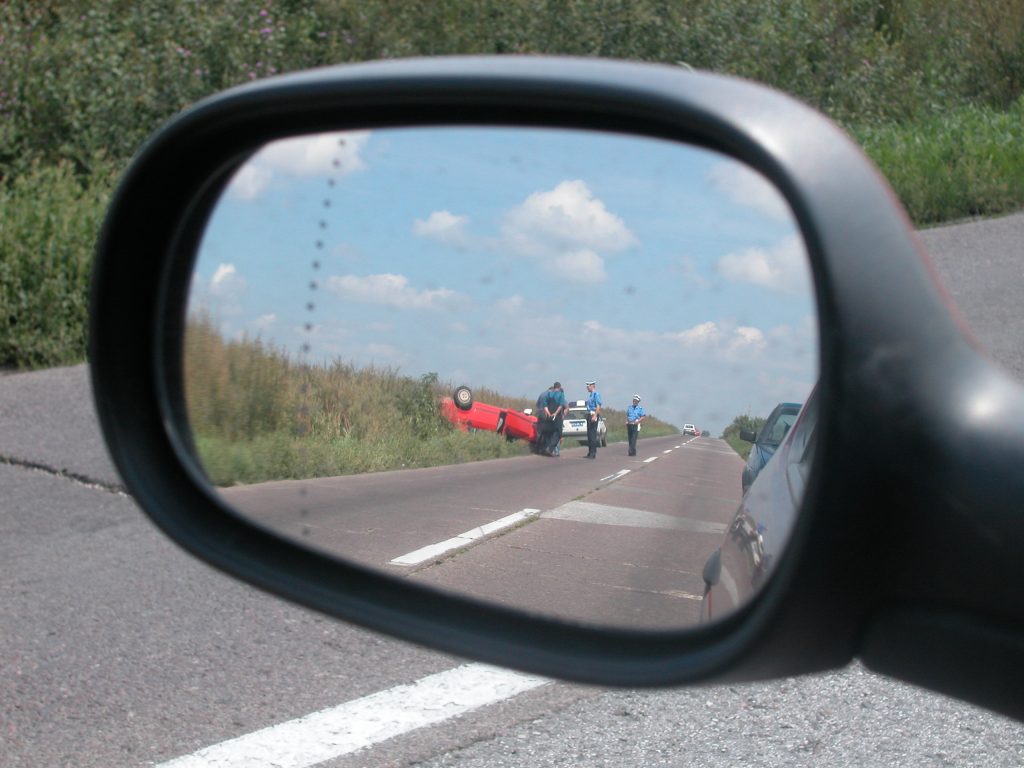 After a motor vehicle collision occurs, a court will assign each driver involved a standard of care they were required to maintain. Drivers under Louisiana law are usually subject to ordinary care when driving their vehicle. However, under the law, certain motorists are held to a higher standard or are favored to have less liability if an accident occurs. This differentiation in standards was recently highlighted when a garbage truck was hit by a pickup driving on a three-lane road while pulling out of a Burger King exit.
After a motor vehicle collision occurs, a court will assign each driver involved a standard of care they were required to maintain. Drivers under Louisiana law are usually subject to ordinary care when driving their vehicle. However, under the law, certain motorists are held to a higher standard or are favored to have less liability if an accident occurs. This differentiation in standards was recently highlighted when a garbage truck was hit by a pickup driving on a three-lane road while pulling out of a Burger King exit. There are many questions involved in filing and pursuing a lawsuit. How do I file? When must I file? Against whom do I file it? What amount of damages do I seek? Most people are unaware that there are different types of damages. An attorney’s trial strategy not only plays a critical role in
There are many questions involved in filing and pursuing a lawsuit. How do I file? When must I file? Against whom do I file it? What amount of damages do I seek? Most people are unaware that there are different types of damages. An attorney’s trial strategy not only plays a critical role in